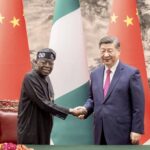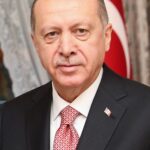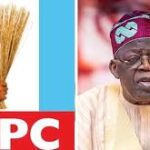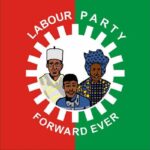By Ephraims Sheyin
As Nigeria marks yet another democracy day on June 12, pundits have continued to evaluate the significance of that day to the nation’s struggle for freedom and representative governance.
Former President Muhammadu Buhari had, on June 6, 2018, declared June 12 as Nigeria’s democracy day instead of May 29.
The gesture was to honour of late Chief M.K.O Abiola generally believed to have won the presidential polls held on June 12, 1993.
Analysts have unanimously declared the election as one of the fairest in the nation’s democratic history, but Abiola, the acclaimed winner was not sworn in as the election was annulled by then military leader, retired Gen. Ibrahim Babangida.
While fighting for the mandate, Abiola was detained over alleged treason and later in prison.
Buhari’s declaration followed many years of agitations by civil society groups who insisted that Abiola must be immortalised.
According to Buhari, the change was to remind Nigerians of the free election whose presumed winner, along with other Nigerians, were denied their rights and their choices.
The annulment of the election sparked up a chain of reactions with the military hurling many into detention while some were killed in the quest to stiffle every voices that sought justice.
The military boots, however, did not stiffle as many groups continued the fight with many individuals escaping to Europe and America where they continued the fight.
The struggle yielded fruits more than six years later as democratic governance was restored in 1999 with retired Gen Olusegun Obasanjo elected President in 1999.
The representative governance had since then continued to grow with one smooth transition of government after another in the last 24 years.
For President Bola Tinubu, June 12 is particularly significant because it is the seed of current democracy in Nigeria.
“The choice of Nigerians to elect a civilian leader to transit from the military rule was the seed that germinated into the longest democratic institution that the country is enjoying,” he said in a speech to mark the day.
Tinubu, a key player in the struggle to actualise the mandate, said that the date gained a historical relevance “due to MKO Abiola’s sacrifice to patriotically stand in defense of the ideals of democracy and forgo a life of ease and capitulation in the face of tyranny of power”.
‘’For the endless future that our beloved country shall exist and wax stronger and stronger, generations of Nigerians will always remind themselves that the democracy that is steadily growing to become the defining essence of our polity was not gifted to us on a silver platter.
‘’We can easily recall the sacrifice and martyrdom of Chief MKO Abiola, the custodian of the sacred mandate that was so cruelly annulled.
‘’He sacrificed his life in unyielding, patriotic defense of the ideals of democracy as symbolised in his choice, by his fellow countrymen and women, as their duly-elected President.
‘’There was an easier choice for him. It was to forgo the justice of his cause and opt for the path of ease and capitulation in the face of the tyranny of power. To his eternal credit and immortal glory, Abiola said no.
‘’He demonstrated the time-tested eternal truth that there are certain ideals and principles that are far more valuable than life itself.’’
Tinubu said the country also owed a debt of gratitude to other Pro-June 12 advocates that sacrificed their lives for the future of the people.
‘’Everyday, on this day, down the ages, we will recall the several other heroes of democracy such as Kudirat Abiola, wife of Chief Abiola, who was brutally murdered while in the trenches fighting on the side of the people.
‘’We remember Pa Alfred Rewane, one of the heroes of our independence struggle and Major General Shehu Musa Yar’Adua, who were silenced by the military junta while in pursuit of democracy. They gave their yesterday for the liberty that is ours today.
‘’The point is that we must never take this democracy for granted. We must forever jealously guard and protect it like a precious jewel. A people can never truly appreciate the freedoms and rights democracy guarantees them until they lose it,’’ he said.
For Prof. Jerry Gana, former Minister of Information and National Orientation, the annulment of the June 12 presidential election was “a tragic mistake that was not supposed to have happened.
He blamed Babangida’s action on “some powerful forces seeking to champion their selfish interests”.
“It was a tragic mistake; it should not have happened but since it happened, may God help us to get out of it,” he said.
The former minister said that the election was a period Nigerians united against evil forces.
“Unfortunately, along the line, the people that never meant well for Nigeria had their way,” he said.
He opined that democracy was better than any other form of government across the globe.
“Therefore, we must stay with democracy in order to better Nigeria because it delivers freedom, human rights and a good number of other things,” he said.
Gana said that Nigerians must thank God for keeping the people and the country together, especially from 1999 to 2023 because the nation’s democracy had had many challenges.
“What happened since all these years destroyed other countries when it happened there but we are still living together as a people,” he said.
He said that many institutions such as the Independent National Electoral Commission (INEC) and others have been put in place to ensure good governance, fairness, justice and equity.
“But, it is not yet uhuru; we are not there yet although a lot of progress has been made.
“Right now, people still clamour for the right to vote and their votes. So, our democracy is being refined,” he said.
The former minister said that the country had recorded huge success in its electoral reform from inception to date.
“The recent Electoral Act (reform) is a huge success recorded for democracy in Nigeria.
“Now the elections are free, fair and accountable,” he said.
Gana said that the country’s economy improved to the extent that it became one of the best economies in Africa.
“If our crude oil, solid minerals and agricultural potentials are harnessed well, Nigeria will rule the world,” he said.
Gana also said that the communication sector had enjoyed the fruits of democracy.
“I remember when we came on board in 1999/2000, we had less than half a million lines of telephone across Nigeria.
“But right now, we have about 84 million lines, that means that there is a great revolution in the sector,” he said.
Similarly, Prof. Mohammed Kuta-Yahaya, a lecturer at the University of Ibadan, has described the June 12, 1993 presidential election as “a moment of political history when Nigerians expressed a hunger for democracy because they were tired of continuous military dictatorship”.
He said that it was unfortunate that the military annulled it for whatever reason.
“That annulment did not go down well with the people because that was when they demonstrated to the whole world that they are one people that believe in democracy.
“This is part of why Buhari recognised June 12 as democracy day in Nigeria.
“It was a day Nigerians came out en mass and freely voted for the leader of their choice irrespective of cultural and religious affiliations,” he said.
He urged Tinubu to recruit competent hands into his cabinet to ensure unity, progress and security of the country, and enjoined the country’s leaders to make education a priority in order to empower the people and make them better persons in the society.
“Quality education will bring about rapid socio-economic advancements because it will make the people self reliant.
“If you make education your first charge, you are going to cause a revolution that will outlive you as a leader to better the people and the country.
“If you don’t educate the people, the youth to become good citizens, they will turn to terrorise you the leader tommorow,” he said.
On his part, elder stateman and Ijaw leader, Chief Edwin Clark, has tasked Nigerians to ensure that the country remained peaceful and crisis-free in spite of its numerous challenges.
Clark was speaking on the significance of June 12 to Nigeria’s growth as a nation.
“We all desire that we live in a country that is peaceful, free from crisis, insecurity and corruption.
“Corruption in the country is so high; there is no arm of government that can be trusted,” he said.
The 96-year-old national leader called for a peaceful country were all Nigerians are equal before the law.
“We want a Nigeria where all of us live together peacefully and without any discrimination.
“We should all obey the provision of the Constitution which states there should be no state religion.
“There should be no promotion of a particular religion over and above others.
“When I was in the 2014 National Conference as an elderstateman, we made a lot of recommendations for the survival of Nigeria as a country.
“We craved for a united country free from crisis, where all the citizens are equal before the law and anyone of them can rise to any position by dint of hardwork,” he said.
But as the nation celebrates the day, Dr Bulama Mali-Gubio, an elder statesman believes it would only be significant if the nation had sincere leaders that would make the struggle for democracy worth the efforts.
“Nigeria needs to grow and attain its full potential as the giant of Africa,” Mali-Gubio, spokesperson for the Borno Elders Forum, stated said.
“We can attain that status if elected leaders perform creditably,” he said.
He regretted that the primary goal of many leaders in the country was self-enrichment.
“Leading a country involves making policies and finding solutions to problems, ensuring stability of the polity, and guiding the country to prosperity.
“But a large number of Nigerian leaders lack the vision, passion and the character to effectively govern and deal with the economic situation.
“In order to achieve the Nigeria of our dreams, we as citizens must first change our values, attitudes and orientation.
“This is because values are the building blocks of national development and no nation can achieve its developmental aspirations unless her citizens embrace and espouse the right values and attitudes,” he said.
The elder statesman regretted the collapse of values, saying that
merit was being sacrificed on the altar of mediocrity, cronyism and nepotism.
“Wealth, no matter the source, is now celebrated in place of honesty and integrity.
“It is clear that no nation can make any meaningful progress in the face of these social vices arising from negative values and dysfunctional attitudes.”
Like Mali-Gubio, many analysts believe that democratic governance can only be meaningful if it tackles concerns of the electorate.
They argue that the significance of June 12 struggles will be lost if democracy benefits just the elected while the electorate wallow in abject poverty, insecurity and neglect. (NANFeatures)












